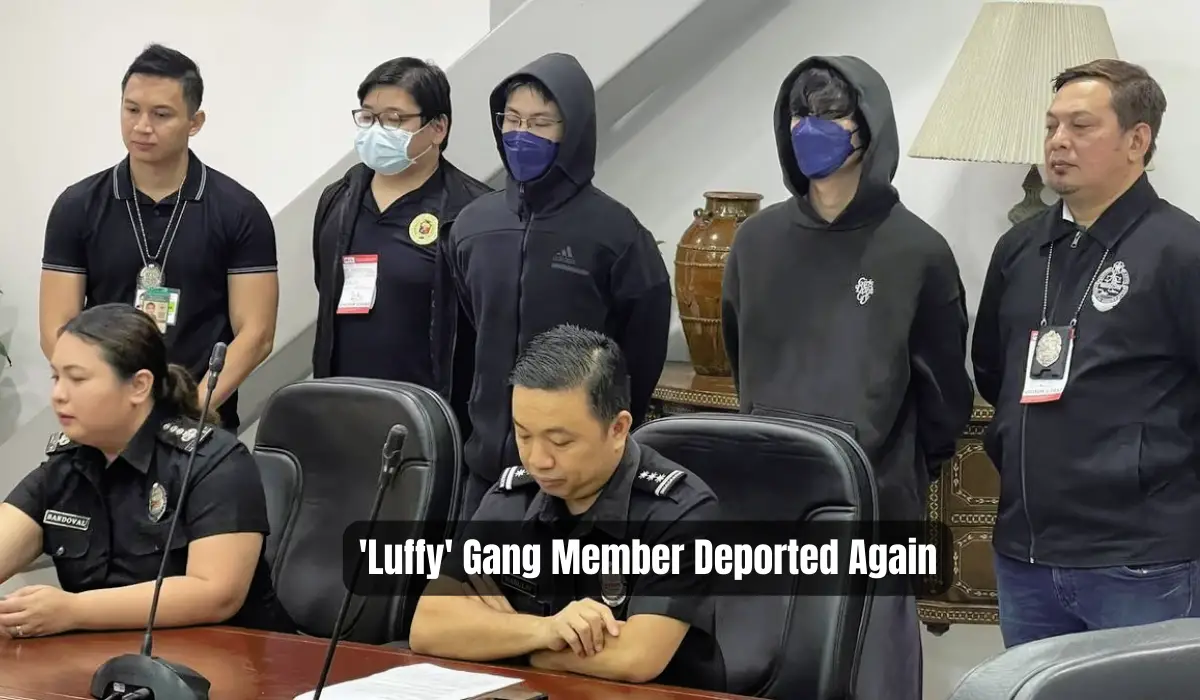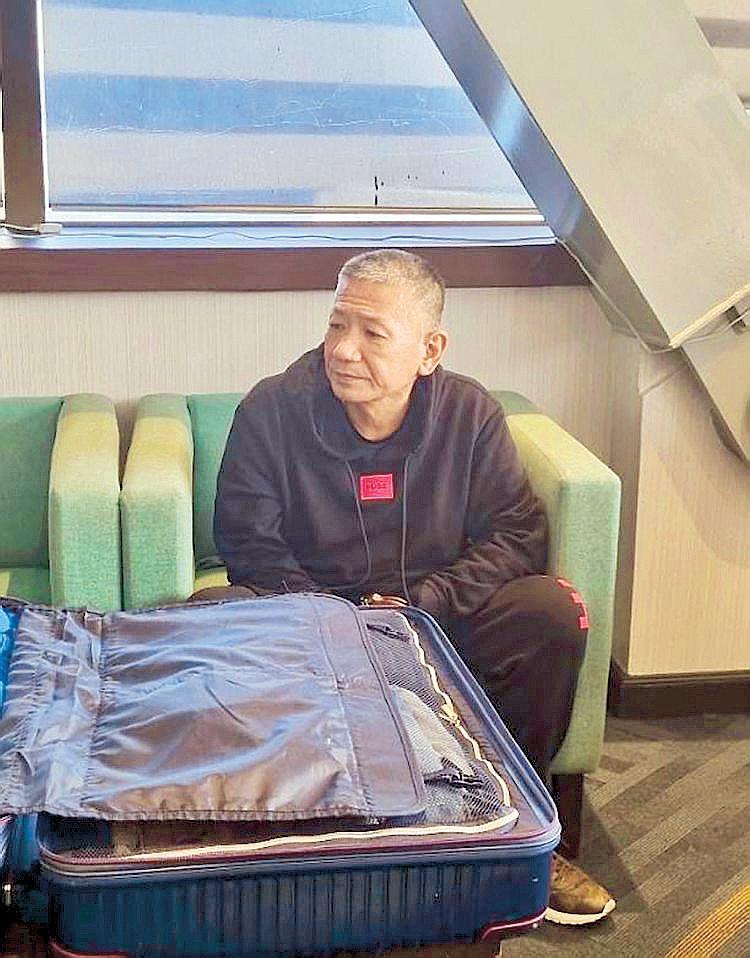Imagine this: you're living your life, working hard, and suddenly, BAM! You're deported for being labeled as a gang member, even though you might not be one. It's a nightmare scenario that's happening more often than you think. Deported as gang member cases are skyrocketing, and it's time we talk about the real issues behind these stories. This isn't just a legal matter; it's a human story that affects families, communities, and lives forever.
When you hear the phrase "deported as gang member," it might sound like something outta a Hollywood movie. But trust me, it's a harsh reality for many people around the world. The system is complex, the rules are strict, and the consequences are life-changing. If you or someone you know has been caught in this mess, it's crucial to understand what's really going on.
So, buckle up because we're diving deep into the world of deportation, gang allegations, and everything in between. This article isn't just about facts and figures; it's about people—real people with real stories. Let's break it down together and figure out how we can make sense of it all.
Read also:Danielle Busby Baby Boy A Heartwarming Journey Into Motherhood
What Does It Mean to Be Deported as a Gang Member?
First things first, let's clear up what it means to be deported as a gang member. It's not just about wearing certain colors or hanging out with the wrong crowd. The authorities have specific criteria they use to label someone as a gang member, but here's the kicker: sometimes those criteria are vague, and mistakes happen. A lot.
Being deported as a gang member means you're being sent back to your country of origin because the government believes you're involved in criminal activities linked to gangs. But here's the twist: you don't even have to commit a crime to get labeled. Things like social media posts, tattoos, or even your neighborhood can land you in hot water.
Why Is This Happening Now?
Here's the deal: over the past few years, there's been a surge in deportations linked to gang allegations. Why? Well, governments are cracking down on organized crime, and gangs are a big part of that. But in the process, innocent people are getting caught in the crossfire. It's like trying to fix a leaky roof by tearing down the whole house.
According to a report by the Migration Policy Institute, deportations for criminal offenses have doubled in the last decade. That includes people labeled as gang members, even if their involvement is questionable. It's a numbers game, and unfortunately, some folks are paying the price.
Key Statistics to Know
Let's break it down with some numbers:
- More than 200,000 people have been deported on criminal grounds in the past five years.
- Approximately 15% of those deportations were linked to gang-related activities.
- Many of these individuals had no documented criminal record.
These stats don't lie. They show us that the system isn't perfect, and there's a lot of room for improvement. But how do we fix it? Let's keep digging.
Read also:Detroit Pistons Remarkable Season Turnaround How They Rose From The Ashes
Who Are These People Being Deported?
Now, let's talk about the people behind the headlines. They're not just numbers; they're human beings with families, dreams, and lives. Some of them have lived in the U.S. for decades, built businesses, and contributed to their communities. But one day, everything changes because of a label they didn't choose.
A Typical Story
Take John, for example. He's been living in Los Angeles since he was five years old. He works as a mechanic, pays his taxes, and volunteers at local schools. But one day, he's pulled over for a routine traffic stop, and suddenly, he's flagged as a gang member. Why? Because he has tattoos from his teenage years and lives in a neighborhood known for gang activity. That's it. No crime, no evidence, just assumptions.
John's story isn't unique. Thousands of people face similar situations every year. It's not just about the label; it's about the ripple effect it has on their lives and the lives of those around them.
The Legal Process Explained
So, how does someone end up being deported as a gang member? It's a complicated process that involves multiple agencies, including ICE and local law enforcement. Here's a quick rundown:
- Law enforcement gathers intelligence on suspected gang members.
- They create databases with names, photos, and other info.
- If you're flagged, you might be placed on a watchlist without even knowing it.
- If you're not a citizen, this can lead to deportation proceedings.
It's a slippery slope, and once you're on that list, it's hard to get off. That's why it's crucial to understand your rights and seek legal help if you're ever in this situation.
Impact on Families and Communities
When someone is deported as a gang member, it doesn't just affect them. It affects their entire family and community. Imagine being a parent deported while your kids are still in school. Or a spouse left behind with no support system. It's heartbreaking, and it happens way too often.
According to a study by the Urban Institute, families with deported members face significant challenges, including financial strain, emotional distress, and social isolation. It's not just about losing a loved one; it's about losing a piece of your life.
Stories from the Frontlines
Let's hear from Maria, whose husband was deported last year. "It's been a nightmare," she says. "We have two kids, and I'm trying to keep everything together, but it's so hard. He was never in a gang, but they said his name was on some list. How do you fight something like that?"
Maria's story highlights the emotional toll these deportations take on families. It's not just about the legal battle; it's about the human cost.
Challenges in the System
Now, let's talk about the system itself. There are a lot of challenges when it comes to deporting people as gang members. First, the criteria for labeling someone as a gang member are often vague and subjective. Second, the databases used by law enforcement can be outdated or inaccurate. And third, the legal process can be overwhelming for those who don't have access to proper representation.
Here's the kicker: even if you're not guilty, proving your innocence can be a long and expensive process. That's why it's so important to have a solid defense team on your side.
How Can We Fix This?
So, what can we do to improve the situation? Here are a few ideas:
- Revise the criteria for labeling someone as a gang member.
- Ensure that databases are accurate and up-to-date.
- Provide more resources for legal representation.
- Focus on rehabilitation instead of punishment.
It won't be easy, but change is possible if we work together. We need to advocate for fairer policies and support those who are affected by these deportations.
What Can You Do?
If you're reading this and wondering how you can help, there are a few things you can do:
- Stay informed about the issues and share this article with others.
- Support organizations that help deported individuals and their families.
- Speak out against unfair policies and practices.
Your voice matters, and together, we can make a difference. It's not just about fixing the system; it's about restoring hope for those who have lost everything.
Conclusion
Deported as gang member cases are a complex and pressing issue that affects thousands of lives every year. It's not just about the numbers; it's about the people behind them. We need to understand the system, the challenges, and the human cost to make meaningful change.
So, what's next? It's up to all of us to take action. Whether it's through advocacy, education, or support, we can help create a fairer and more just system for everyone. Let's not let these stories go unheard. Share this article, start conversations, and most importantly, keep pushing for change.
Table of Contents
- Deported as Gang Member: The Untold Story Behind the Headlines
- What Does It Mean to Be Deported as a Gang Member?
- Why Is This Happening Now?
- Key Statistics to Know
- Who Are These People Being Deported?
- A Typical Story
- The Legal Process Explained
- Impact on Families and Communities
- Stories from the Frontlines
- Challenges in the System
- How Can We Fix This?
- What Can You Do?
- Conclusion


